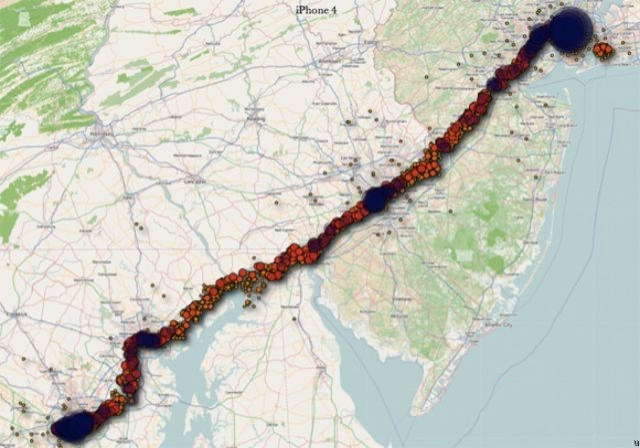Thousands Sue Apple over 'Clearly Illegal' Location Tracking

A group of consumers in South Korea has launched a class-action suit against Apple Inc., claiming that iPhones and other devices were invading their privacy.
About 27,000 people joined the suit against Apple, seeking nearly $1,000 per person according to a notice posted by Mirae Law, the firm representing the plaintiffs.
The firm plans on gathering more people to join the suit, and mentioned that among those suing, 921 are underage.
The suit stems from scrutiny placed on the company after security researchers discovered that Apple iPhone devices were actively logging the whereabouts of users, storing location data into an easily accessable file on the device.
Apple's iPhone 3G, iPhone 3GS, the iPhone 4 and iPad models are also keeping track of consumers' whereabouts.
"Accumulating location data without individual consent is clearly illegal," said Jae-Chul Lee, the representative attorney, to the Korean press. "We are suing Apple to recover the customers' rights."
The U.S. company was fined by South Korea's telecommunications regulator earlier this month and ordered to encrypt location data of people using iPhones to address privacy concerns.
Prior to increasing pressure from consumers and governments, Apple devices stored location data on users for up to a year. Since the iOS 4.3.3 update in early May, that time has now been reduced to seven days.
While Apple declined to comment on the current case, it has constantly denied that it was ever logging user locations.
"Apple is not tracking the location of your iPhone," the company said in April, in response to Congressional probes. "Apple has never done so and has no plan to ever do so."
It is currently unclear how pervasive this practice is across the wireless device industry and the extent to which it has been disclosed to consumers.
Google wrote off concerns earlier this year about its mobile devices sending precise user location data back to its servers, but e-mails between executives unveiled in May illustrate that user location is instrumental in its strategy.
Executives characterized location information from millions of mobile devices and personal computers as "extremely valuable" to the company's future business, according to e-mails filed as part of a lawsuit against the search giant last year.
The revelation led to investigations in the U.S., Germany Australia and Korea.
© Copyright IBTimes 2025. All rights reserved.





















